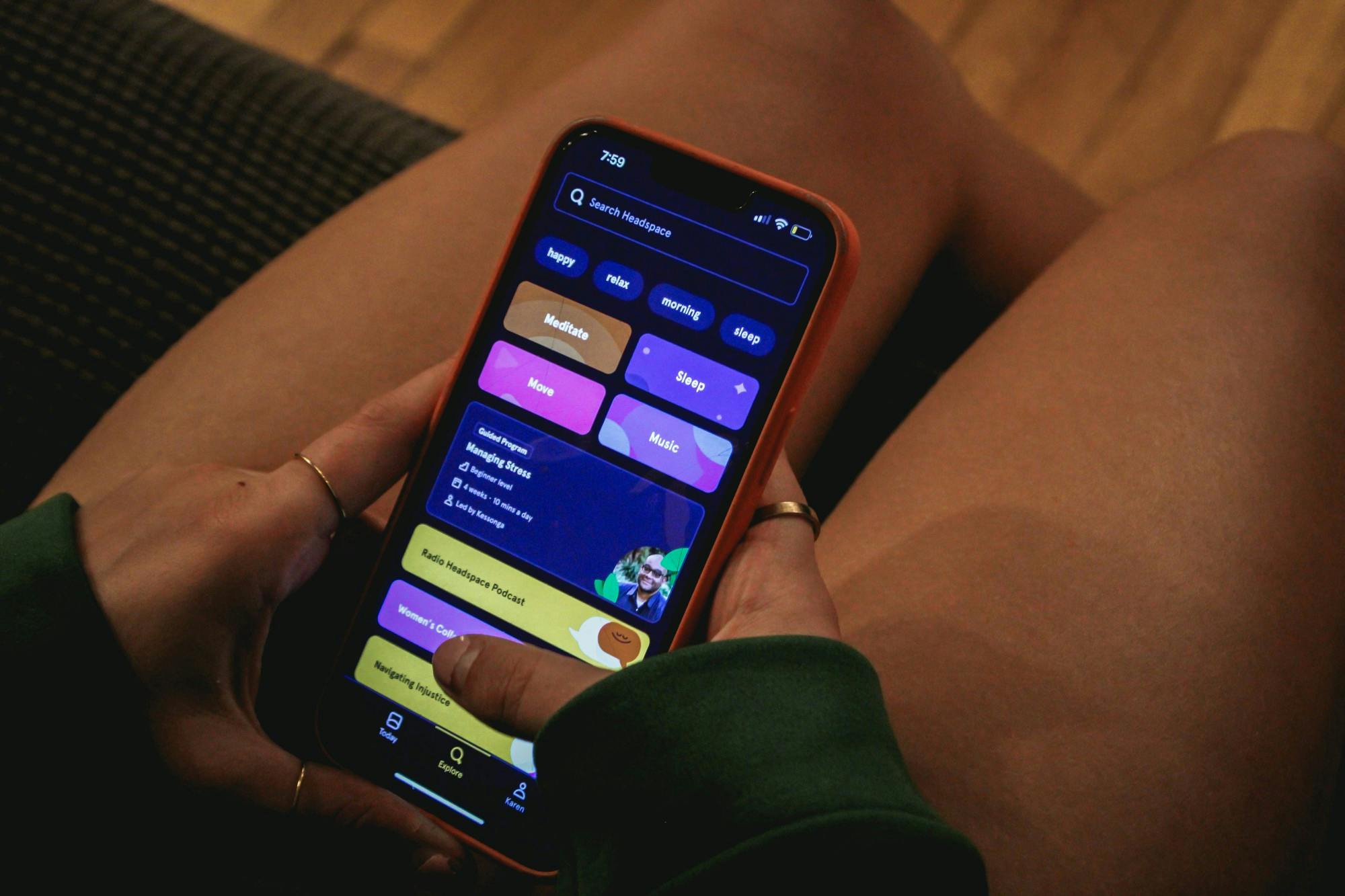On Sept. 8, the College announced through a community-wide email that Headspace, a “science-backed app for mindfulness and meditation,” will now be available at no cost for students, staff and faculty. The app provides users with guiding tools for wellness practices, such as managing stress, sleeping better and mindful exercise.
According to Student Wellness Center director Caitlin Barthelmes, some of the main reasons that the College chose Headspace were because of its name and brand recognition, “menu of options” to support well-being and user-friendly interface.
“One of the things that I really love about Headspace being utilized on our campus is that it offers a pathway for people who are interested in mindfulness to get a taste of it,” Barthelmes said. “It also can serve as a tool for people who are regular mindfulness practitioners to deepen their practice; it really speaks to the spectrum of both interest and experience with mindfulness.”
Barthelmes said that the app was chosen after an expression of interest from the community in new ways to improve mental well-being across campus. After a small-scale pilot testing multiple mindfulness apps with a cross section of undergraduate students, graduate students, faculty and staff, she said that Headspace garnered the most positive endorsement.
According to Barthelmes, Headspace will build upon the other “robust” mindfulness opportunities already on campus, such as yoga classes and wellness check-ins at the SWC, but will provide students with a more personal dimension to practicing mindfulness while engaging with their own phones.
Both alumni and students have been advocating for additional wellness sources, according to co-president of the Dartmouth Mental Health Student Union Pulkit Nagpal ’23, who added that he feels this addition helps student voices be “heard.”
“This could be such a great option for people who want to practice positive wellness,” Nagpal said. “I think Headspace is a great step in the right direction.”
Audrey Herrald ’23, director of MHU’s mental health ambassador program, said that she feels that Headspace will offer a more private way of getting mental health resources that may make students feel more comfortable in reaching out for support.
“I really like that it’s not a one size fits all type of thing, because no mental health solution is totally one size fits all. But it does offer options for everybody, regardless of where they’re at in their mental wellness journey,” she said.
However, some students believe that the provision of Headspace doesn’t fully address the mental health needs on campus.
“I think it’s a very performative way to address mental health issues and awareness versus actually trying to change any aspects of the culture at the school,” Hudson Rogers ’25 said.
Rogers added that he feels that one app is not enough to overcome the large-scale campus mental health crisis and how “isolating” he thinks that Dartmouth can sometimes feel.
In response to students who make this kind of claim, Herrald expressed that she feels Dartmouth has many leaders who want to make sure students feel heard.
“Of course there’s always more that can be done, but I think Headspace is absolutely a step in the right direction. There’s nothing bad about additional resources,” she said. “We have resources like the Student Wellness Center, the Tucker Center, Wellness at Dartmouth for staff and faculty and the counseling center. This is not going to replace [those resources], but it could hopefully supplement.”
In response to these types of claims, Barthelmes expressed that providing the community with Headspace was “less about filling a gap and more about expanding the opportunities and building upon the good work that was already happening in our community.”




